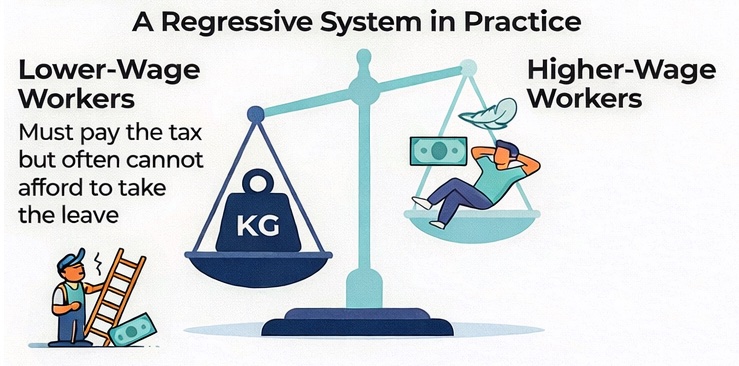Even though the U.S. Supreme Court hasn’t yet heard oral arguments in the highly anticipated Janus v. AFSCME case, organized labor isn’t taking any chances. They’ve tapped the Democrat lawmakers they helped elect to pass union-backed legislation that would circumvent a ruling in favor of worker rights.
Let’s start with a little background. On February 26, the nation’s highest court will hear arguments from both sides of the case of Janus v. the American Federation of State, County and Municipal Employees. The case resurrects the Friedrichs v. California Teachers Association challenge to the forced unionization of public school teachers. The Court was poised to rule in favor of public school teacher Rebecca Friedrichs in 2016, but the sudden passing of Justice Scalia just one month after oral arguments left the issue unresolved.
Now the Court is set to consider the same legal arguments against the forced unionization of public workers. If the Court rules in favor of Mark Janus, a child support specialist at the Illinois Department of Healthcare and Family Service (which appears likely based on the current composition of the Court), public employees in the 22 non right-to-work states, like Washington, will no longer be forced to choose between paying the union or keeping their jobs. Every public employee in the nation will be free to choose.
But unions don’t like to let pesky things like U.S. Supreme Court decisions stand in the way of their forced unionization gravy train. When unions took their first hit from the Court in the 2014 Harris v. Quinn decision, which ruled unconstitutional the forced unionization of home care providers who are considered state employees “solely for the purposes of collective bargaining,” the president of SEIU International declared “no court case is going to stop us.”
SEIU kept their word and has fought tooth and nail to prevent home care providers, and other “partial public employees,” from exercising their right to reject paying the union for representation they do not want. Their latest maneuver includes an outrageous end run around the U.S. Supreme Court ruling in Harris v. Quinn.
Now unions are adopting the same mentality in response to a potential Supreme Court ruling in favor of Mark Janus this summer.
Yesterday lawmakers passed two union bills, SB 6229 and HB 2751, along a mostly party line vote, with two Republicans in the Senate voting with Democrats to appease union leaders. Both bills are preemptive work-arounds to a Court ruling against unions in the Janus case.
HB 2751 would change the state’s law to allow unions to collect dues and fees from public employees without bothering to get the written permission of those employees. Currently, a union needs the written authorization of public employees to have the government withhold a portion of their paycheck for the union. This bill would remove that requirement, instead putting the burden on public employees to take the initiative to affirmatively opt-out of the forced dues collection in writing.
This is the same scheme the state enacted at the request of SEIU after the Harris v Quinn decision. SEIU has made the opt-out process confusing and difficult, doing its best to hide the fact home care providers have the right to opt-out and limiting the option to narrow windows of opportunity each year.
Should the U.S. Supreme Court rule in favor of Mark Janus and declare it unconstitutional to force public employees to pay a union for representation they do not want, public employees will have the right to reject paying the union; but there is no doubt unions will employ the same tactics as SEIU to keep workers from knowing about their right and to make the process of exercising that right as difficult as possible.
While not an outright end run around a potential ruling in the Janus case, SB 6229 would give unions a minimum 30 minutes of taxpayer-funded time to pressure public employees to pay the union.
Again, this is similar to a scheme the state enacted for SEIU after the Harris v. Quinn ruling. Through a series of public records requests, the Freedom Foundation has discovered these SEIU captive audience meetings are often high-pressure, coercive and blatantly misleading. There is no reason to think such meetings for other state workers will be any different.
One has to give credit to unions for sheer determination and creativity when it comes to schemes to work around rulings by the U.S. Supreme Court that threaten their guaranteed forced-dues revenue stream. It is not shocking that they would stoop to any level to keep that easy money flowing into union coffers.
What is shocking is that so many of our state’s lawmakers are willing to stoop to that same low level and treat decisions by the nation’s highest court as nothing more than inconveniences to be worked around, all for the sake of political payback.





